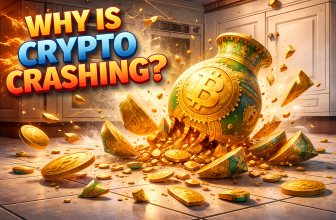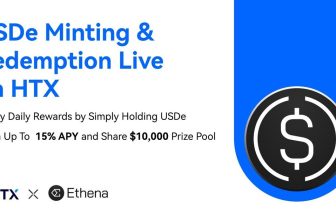
Economic forum in Davos is all the rage these days, not only in cryptocurrency world but much broader. It is a summit where all political and economical leaders of the world gather around to discuss the future of the planet for the upcoming year.
Couple of panels have drawn attention of crypto holders, most notable one saw Ripple CEO Brad Garlinghouse and Ethereum co-founder Joe Lubin “lock horns” and exchange couple of subtle jabs at each others projects.
Joe was dominant panelist in terms of speaking time so he took the first swing by mentioning Ripple’s monopoly over XRP ownership. Ripple is currently holding 55 billions of XRP tokens, out of 100 billion of total supply.
Garlinghouse was much more composed and cultured in his replies, defending Ripple’s position by emphasizing their transparency when it comes to the XRP they hold and sell in a predefined way. He also went in an attack mode and called out Lubin for his company’s opaqueness when it comes to their holdings of ether, asking Lubin: “How much (op.ed of ether) do you sell?” You can see the discussion in the video below:
Joey clearly wasn’t interested in explaining how his company manages their funds by saying that they manage their treasury like any company does it. In plain English: none of your business.
That triggered an interjection by Garlinghouse, who then slipped a nicely wrapped dig at Ethereum by saying:
“I find it interesting that Ripple is attacked for being transparent, because we are very proactive and share information in our reports. Yet, other platforms don’t share that information, so they are insulated from those same critiques and criticisms. I think in the dictionary, that is called hypocrisy, I am not 100% sure.”
The ongoing Ripple campaign of divorcing from XRP
Ripple Inc, the company that currently owns 60% of all XRP is in a constant campaign of distancing itself from the XRP token and XRP ledger in an effort to persuade regulators to not classify XRP as a security (issued by Ripple) which would probably mean an end for the whole XRP token story.
Ripple, the company behind the XRP coin, has made it a point in the past to convince everyone it’s not a security. Brad Garlinghouse, the CEO of Ripple, has spoken about this issue multiple times. In a recent interview to CNBC, when asked about a recent lawsuit from former XRP holders who sued Ripple claiming that it in fact is a security, had the following to say:
“Whether or not XRP is a security shall not be dictated by one lawsuit. The SEC is the governor of that. I think it is very clear that XRP is not a security. It exists independently of Ripple the company. If Ripple, the company shut down tomorrow, XRP will continue to exist.”
This sentiment has also been echoed by Ripple’s chief market strategist Cory Johnson. Mr. Johnson responded to questions if XRP should be regulated as a security by saying:
“We absolutely are not a security. We don’t meet the standards for what a security is based on the history of court law.”
Where and how to buy Ripple’s XRP token?
Most lawmakers look back to the “The “Howey Test” when determining if something is a security or not. This test has been created by the Supreme Court for determining whether certain transactions qualify as “investment contracts.” If so, then under the Securities Act of 1933 and the Securities Exchange Act of 1934, those transactions are considered securities and therefore subject to certain disclosure and registration requirements.
Ripple has changed some of its critical statements from the past, according to The Block founder and CEO, Mike Dudas. Dudas did thorough research on the company, citing Ripple’s stance on key arguments related to the company and its cryptocurrency.
Contradictions between 2013 and 2018
As Cryptopotato writes, according to an archived version of Ripple’s website, the company had stated back in 2013 that they had created the 100 billion XRP that’s in circulation today. Furthermore, the 2013 version of Ripple’s site reports that a group of programmers at Ripple Labs “invented” Ripple and released the beta version of the software in 2013, which was made open-source.
“Ripple Labs is the creator of Ripple. We developed the protocol and its distributed payment network, and we now work to support and promote its growth,” the company states in an early version of its whitepaper. “100 billion XRP was created with the Ripple protocol. Ripple Labs plans to gift 55 billion XRP to charitable organizations, users, and strategic partners in the ecosystem over time. The company will retain a portion with the hope of creating a robust and liquid marketplace in order to monetize its only asset sometime in the future.”
What XRP wallets are most trusted and used?
On the contrary, on the current version of the company’s website, Ripple states that they didn’t create XRP.
“Ripple, the company, didn’t create XRP; 100 billion XRP was created before the company was formed, and after Ripple was founded, the creators of XRP gifted a substantial amount of XRP to the company,” as currently stated.







